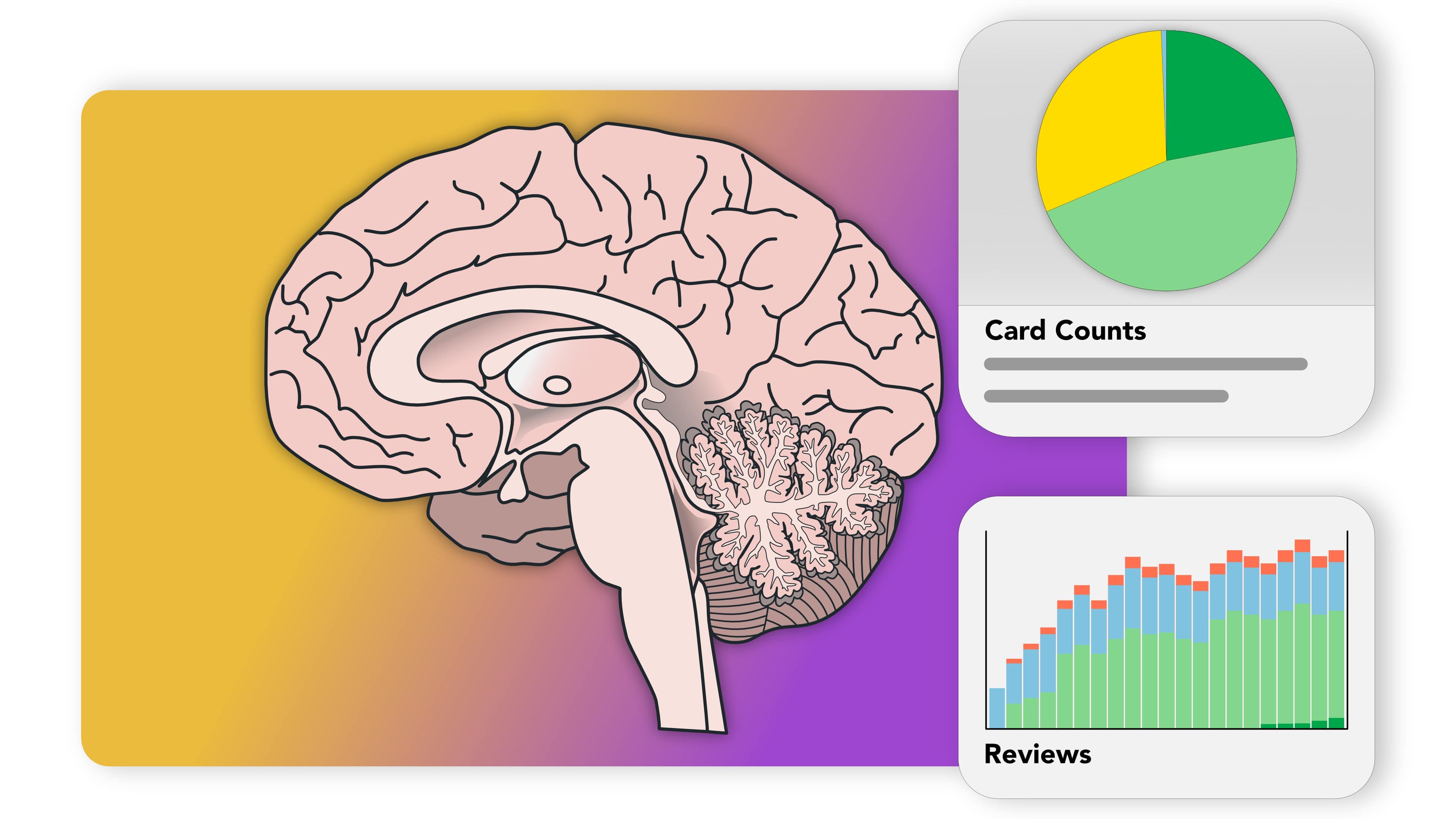


Anki mcat units pdf#
Kaplan’s MCAT Complete 7-Book Subject Review 2021–2022 PDF includes updates across all 7 books to reflect the latest, most accurate, and most testable materials on the MCAT.
Anki mcat units free#
While AAMC MCAT practice exams are not entirely free, they do provide a free sample test with 230 questions that can be accessed through the MCAT Official Prep Hub. Detailed score reports that show you … LEARN TO THINK LIKE THE TEST. I got a sub-500 score on my first … Why The Princeton Review? We love our teachers, and so will you. AAMC Full-Length Practice Exams – 3 Paid MCAT Tests ($35 each) 2.
Anki mcat units plus#
MCAT Self-Study Toolkit includes MCAT Complete 7-Book Subject Review 2023-2024 plus Kaplan’s 3,000+ question Qbank, plus 3 more full-length practice tests. Here are our top 3 MCAT prep book picks for 2023.
Anki mcat units update#
We constantly update our content, images, and questions so you can stay ahead of the curve. Determines the direction of rotation of the electronKaplan mcat practice test pdf.Possible values are: 1 (K), 2 (L), 3 (M), etc.The state of each electron is determined by the four quantum numbers:.N electrons = 2 n 2, where N electrons designates the number of electrons in shell n.If the number of half-lifes n are known we can calculate the percentage of a pure radioactive sample left after undergoing decay since the fraction remaining = (1/2) n.Δ m /Δ t = rate of decay where Δ m = change in mass, Δ t = change in time.Gamma (γ) ray = no mass, no charge, just electromagnetic energy.A positron = +1e 0 (same mass as an electron but opposite charge).Beta (β) particle = -1e 0 (an electron).Alpha (α) particle = 2He 4 (helium nucleus).Note: Specific gravity (SG) is equivalent to the fraction of the height of a buoyant object below the surface of the fluid. Put these equations to the test, try some MCAT Physics questions with our free MCAT practice test. Regardless of the courses you have taken, make sure to review the AAMC’s exam topic outline. Students who have only taken an Introduction to Physics course will most likely need to take the next-level physics course offered at their school to learn all the physics concepts tested on the exam. For curriculums in which Physics 2 covers more theoretical applications, this exam will focus primarily on topics covered in Physics 1. Physics topics on the MCAT usually cover content from the first semester of college physics, or Physics 1, and the second semester of college physics, or Physics 2. The more you review the formulas and units, the less hard this section will feel. This is where content review and practice questions become most beneficial. What students tend to find most challenging about this exam’s physics content is the dimensional analysis, unit conversion, and mental math required to answer questions quickly. This exam tests your knowledge on common physics concepts taught in undergraduate school, so its questions should not be any harder than the questions you faced in your college physics classes. Yes, MCAT physics is hard, but with adequate content review and consistent practice, it is quite manageable.

The best way to remember MCAT Physics formulas is by: 1) understanding the idea(s) behind the equation 2) application: doing and reviewing practice questions and practice tests that require classic MCAT physics formulas, which of course, will improve your understanding of what you need to know 3) in rare instances, using mnemonics or other memory devices (e.g. How do you remember MCAT physics formulas? Occasionally, the AAMC will provide physics formulas during the exam itself, but never basic formulas. For MCAT Physics, there are many equations that you should memorize in order to maximize your score. No, you do not need to memorize all equations for the MCAT. MCAT Physics Equations: Frequently Asked Questions Do you have to memorize all equations for MCAT?


 0 kommentar(er)
0 kommentar(er)
